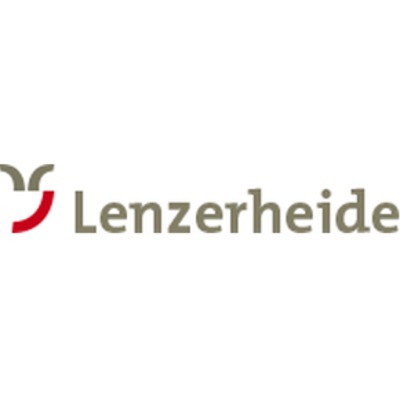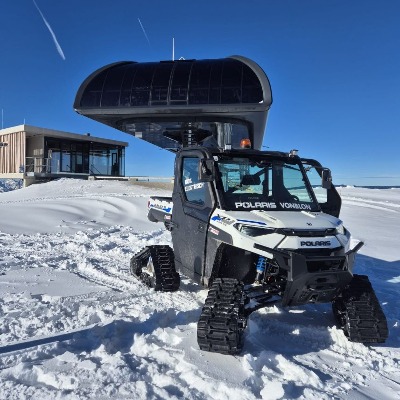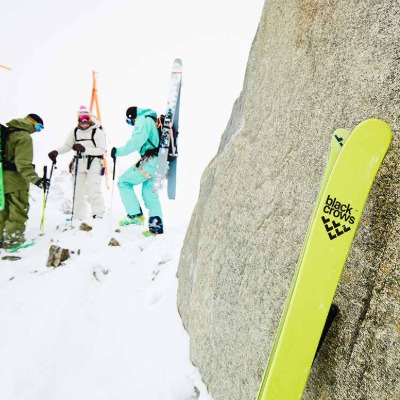Bundner Bergbahnen - Corona Restrictions Lead To 23 % Lower Turnover

After the positive developments in the last two winters, the transport sales of the Graubünden mountain lift companies fell by 22.8 percent from the start of the season to the end of December due to the corona. The number of guests fell by 17 percent.
Bergbahnen Graubünden (BBGR) is primarily committed to improving the legal and economic framework and represents the interests of its 50 member companies vis-à-vis politics , administration and other business partners .With the exception of a few small mountain lifts, all mountain lift companies in the canton of Graubünden are members of BBGR.
Despite the decline in sales, Bergbahnen Graubünden (BBGR), the branch organization of the Bündner Bergbahnen, is convinced that keeping the ski areas open over the holidays was a balanced solution for the health of the guests and the Graubünden economy. By restricting the sale of day tickets by a third and communicating accordingly to day guests, the Graubünden mountain railways have shown that they are no crisis profiteers. As an industry, in consultation with the Graubünden government, it was achieved that the guests were distributed across the area and large crowds were avoided. The guests present enjoyed the best conditions and behaved in accordance with the protection concepts in a disciplined and grateful manner.
The guests' need for exercise outside in nature was clearly noticeable in these virus-shaped times. Numerous ski areas were able to open their gates early at the end of October or November and welcome numerous guests.
After the Graubünden mini-lockdown on December 2 and the Federal Council measures from December 22 and the restriction on the sale of day tickets by a third, the losses could no longer be avoided: the declines of 22.8 percent in transport turnover and 17 percent in the The number of guests also means a significant decrease compared to the long-term average: 6.2 percent and 7.4 percent on a 5 and 10-year average for transport sales and 2.4 and 4.5 percent for first-time entries. BBGR's monitor includes 23 companies or 90 percent of Graubünden's transport turnover. According to Martin Hug., President Bergbahnen Graubünden (BBGR), after two years of relaxation, the mountain railways are back to the level of a year with little snow and weak economic conditions. Overall, there were three weak winter seasons in the last five years. The regional differences can be explained by the different start of the season. In addition, the influence of the closed systems in Ischgl in the Lower Engadine and those in Andermatt in the Surselva were felt.
In coordination with the Graubünden government, the entire mountain railway industry has accepted a sales restriction of around a third of day tickets. This was clearly reflected in sales and first-time entries. The older pleasure skiers and the cross-generational family activities on the mountain were missing. The mountain gastronomy, which was limited to takeaways, suffered massive losses and was also not allowed to offer warm-up or seating for the consumption of food and drinks. This is why the ski guests stayed in the ski areas much less long. All these restrictions not only meant a loss of sales, but also significantly higher expenses because of the strict protection concepts. As a system-relevant tourism infrastructure, the mountain railways have thus made their contribution to overcoming the crisis. The concerted approach prevented even greater damage to the Graubünden economy, because one third of the added value in Graubünden comes from tourism. The mountain railways, for their part, generate more than 90 percent of the added value in winter. For President Martin Hug, it is therefore clear that the mountain railways must be compensated for the public service they have provided and the losses suffered by the canton and the federal government. Negotiations are ongoing, but details are not yet ready for a decision. that the mountain railways have to be compensated for the public service they have provided and the losses suffered by the canton and federal government. Negotiations are ongoing, but details are not yet ready for a decision. that the mountain railways have to be compensated for the public service they have provided and the losses suffered by the canton and federal government. Negotiations are ongoing, but details are not yet ready for a decision.
It is important for the mountain railways to be able to keep their facilities open until Easter in the winter, which is important in terms of added value. Of course, continue to take the appropriate protective measures. By keeping the ski areas open, the mountain railways help ensure that the high number of guests is better distributed in the tourist destinations. President Martin Hug: "With the operation of the lifts, we will continue to ensure an orderly, controlled and safe distribution of guests at the weekends and during the winter sports holidays and thus reduce the pressure on the villages and other outdoor activities." It should be noted that restaurants (including in ski areas) and leisure facilities in Graubünden are expected to be closed until January 22, 2021. In the ski areas, catering is possible via take away and, since December 31, also with seating on the sun terraces. All measures to protect against the coronavirus must still be strictly adhered to. In and on all mountain railway facilities (including chairlifts and ski lifts) as well as in the waiting and access areas (outside and inside), guests aged 12 and over and employees wear mouth and nose protection. Funiculars, aerial tramways and gondolas are only two-thirds full. The required distance must be kept when queuing. Chairlifts and ski lifts) as well as in the waiting and access areas (outside and inside), guests aged 12 and over and employees wear mouth and nose protection. Funiculars, aerial tramways and gondolas are only two-thirds full. The required distance must be kept when queuing. Chairlifts and ski lifts) as well as in the waiting and access areas (outside and inside), guests aged 12 and over and employees wear mouth and nose protection. Funiculars, aerial tramways and gondolas are only two-thirds full. The required distance must be kept when queuing.













